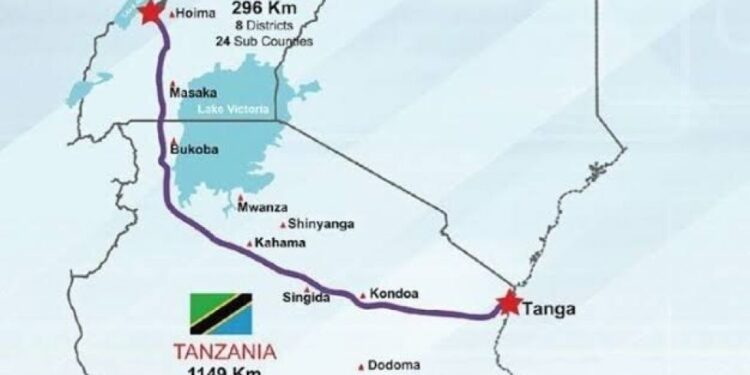HOIMA: A new report indicates that the East African Crude Oil Pipeline (EACOP) project has, to a great extent, impoverished the Project Affected People (PAPs).
This is contained in a research report released November 7, 2023 by Africa Institute for Energy Governance (AFIEGO).
According to AFIEGO, the research was conducted between April and November 2023. Two hundred and thirty-seven (237) respondents from 31 villages, 16 sub-counties and six of the 10 EACOP-affected districts in Uganda participated in the research.
The participants were drawn from districts of Hoima, Kikuube, Kakumiro, Mubende, Lwengo and Kyotera. They included EACOP project-affected persons, local council leaders, women, the elderly and cultural as well as opinion leaders.
The research assessed the impact that the EACOP project has had on the affected people’s access to land, the productivity of the replacement land that the affected people acquired after being displaced for the EACOP and the changes in income the affected people experienced after being displaced for the EACOP.
The research also assessed whether the EACOP had enhanced the affected people’s access to social services such as schools, health centres and cleans water among others. The EACOP-affected people’s access to employment opportunities in the oil and gas sector was also assessed among others.
The Chief Executive Officer of AFIEGO, Dickens Kamugisha, argues that the Ugandan government and other promoters of the oil and gas industry in Africa have made arguments that the industry is needed to promote socio-economic growth; however, this has not been the case.
“Our research shows that instead of improving the socioeconomic conditions of the affected people, the EACOP led to a regression in the affected people’s lives,” he said.
The latest developments come on the heels of the country announcing that civil works for the EACOP had already commenced ahead of the 2025 commercial production of oil.
“We hope that the Ugandan government and other stakeholders will use this study, and others that highlight the impact of the oil and gas sector on the affected people, to promote better investment choices. It is best to invest in sectors that have a positive socio-economic impact on Ugandans,” Kamugisha added.
Uganda intends to use the EACOP to transport crude oil from the Albertine region to the Tanzanian port of Tanga.
Amina Acola, a lawyer, says the study showed that the EACOP project developers have contravened various rights that the affected people should have enjoyed as guaranteed under Uganda’s Constitution.
“Among others, the affected people’s property rights and their right to make a living were negatively impacted by the project. CSOs can support the affected people to seek justice through litigation among others,” Acola said.



